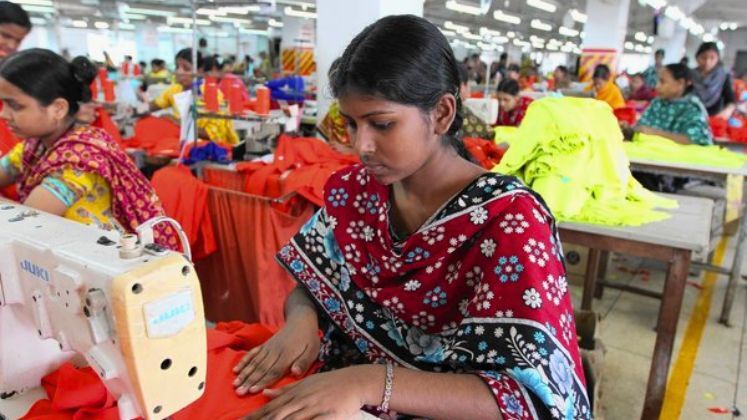
The garment sector in Bangladesh faces mounting challenges as the push for greener supply chains intensifies, raising fears among workers about job security and wage stability. Global buyers are demanding increased use of renewable energy and sustainability certifications, prompting factories to invest heavily in solar infrastructure and energy-efficient practices. However, these necessary steps have sparked anxiety among workers, many of whom struggle to meet basic needs amid stagnant wages.
Experts clarify that the green energy transition differs from automation, which can directly reduce employment. While automation may lead to job cuts over time, the immediate shift to renewable energy should, in theory, create new opportunities for installation, maintenance, and green manufacturing. In practice, however, the financial pressures of adopting renewable energy are already impacting workers through stagnant wages and increased job insecurity.
Shafiqul Alam, lead analyst for Bangladesh at the Institute for Energy Economics and Financial Analysis (IEEFA), emphasised that the renewable shift is urgent but must be managed carefully. Alam called on the government and industry leaders to ensure the costs are not unfairly passed down to workers, advocating for a ‘Just Energy Transition’ that safeguards labour rights and promotes social equity.
Despite rising environmental credentials, Bangladesh now hosts 230 LEED-certified green factories, the benefits have yet to reach workers. Many still earn around Taka 12,000 per month, barely enough for basic living costs, with wages and job security failing to keep pace with production growth and technological upgrades.
Labour leaders highlight the disconnect between environmental gains and workers’ welfare. Razequzzaman Ratan, president of the Socialist Labour Front, criticized the green transition, stating, “Factories are going green, but workers are left in the dark, underpaid, insecure, and now fearing layoffs.”
Meanwhile, the environmental impact of the sector remains a concern. Denim factories relocating from China have increased water consumption and pollution in Dhaka’s rivers, adversely affecting nearby communities.
To address these issues, Labour Reform Commission Chairman Sultan Uddin Ahmed has proposed establishing a national platform under the Ministry of Labour to develop a socially just transition roadmap. An emergency fund, contributed to by companies, would provide two months’ wages for workers during closures or crises.
Stakeholders agree that a sustainable future for Bangladesh’s garment industry requires integrated action. This includes embedding labour protections into energy transition plans, expanding access to green financing, promoting rooftop solar initiatives, and conducting awareness campaigns to dispel misinformation and alleviate worker fears.






